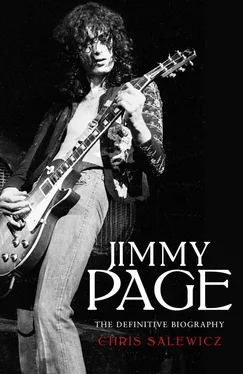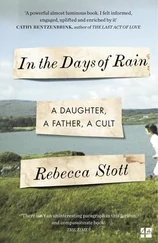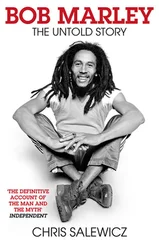‘Their lead vocalist, Van Morrison, was really hostile as he didn’t want session men on his recordings,’ said drummer Bobby Graham. ‘I remember the MD, Arthur Greenslade, telling him that we were only there to help. He calmed down but he didn’t like it.’
‘Whatever Morrison’s reservations, they worked well together, and Graham’s frenzied drumming at the end of “Gloria” is one of rock’s great moments,’ wrote Spencer Leigh in his Independent obituary of Graham.
And the opening guitar riff on ‘Baby Please Don’t Go’ is one of the defining moments of popular music in the sixties. This was all Billy Harrison’s own work. ‘What annoyed me later,’ he said, ‘was that you would start to see how it was being said that Jimmy Page had played a blinding solo on “Baby Please Don’t Go”. I got narked about that: he never said he did it, but he never denied it.’
‘For a long time,’ said Jackie McAuley, who joined Them the next year, ‘Jimmy Page got credit for Billy Harrison’s guitar part. But he’s owned up about it.’
Bert Berns also pulled Page in for ‘Shout’, a cover of the Isley Brothers’ classic that was the debut hit for Glasgow’s Lulu & The Luvvers. And he had him add his guitar parts to her version of ‘Here Comes the Night’, a majestic version that was released prior to Them’s effort, but spent only one week in the UK charts.
Shel Talmy, a former classmate of Phil Spector at Fairfax High School in Los Angeles, also loved Page’s playing, and the guitarist was equally taken with him: a studio innovator, Shel Talmy would play with separation and recording levels, techniques that Page would assiduously study.
Soon after he had arrived in London and started working for Decca, Talmy came across the guitarist: ‘Somebody mentioned that they’d heard this 17-year-old kid who was really terrific, and I went and checked him out and I used him. We got along great and he was fabulous. I thought, “This kid is really gonna go somewhere,” and I only regret that he didn’t call me when he formed Led Zeppelin. It’s a shame! I would like to have done that.
‘He got it. I mean, he was original. At that time in London there were very few really current musicians: a lot of good musicians, but kind of mired slightly in the past. There were, like, one or two good rhythm sections and that was it. I originally started using Big Jim Sullivan, who was the only other one, and then I found Jimmy, who I thought was even better because he was more with it. He was doing what I thought should be done and certainly what was being done in the States, so it was a no-brainer.’
Fitting Page together with drummer Bobby Graham, and from time to time John Baldwin on bass, the producer had a team that was highly resourceful and fast. Talmy has described Graham as ‘the greatest drummer the UK has ever produced’. While playing with Joe Brown and the Bruvvers, Graham had been approached by Brian Epstein at a gig at the Tower Ballroom in New Brighton, in June 1962. Would he care to replace Pete Best in the Beatles? Epstein asked him. Graham turned down the offer, leaving the way clear for Ringo Starr.
Graham first met Page when the guitarist was playing with Neil Christian and the Crusaders; they had supported Joe Brown at a show in Aylesbury, Buckinghamshire. ‘I was so impressed. We became very good friends, and when I became a producer I always used Jimmy. We started a publishing company called Jimbo Music, for stuff we wrote. Jimmy wasn’t one of the most way-out and weirdest characters I ever met: he was very quiet, very shy. Jimmy had a slightly dirtier sound than Big Jim Sullivan – they used to alternate a lot. Unless the arranger wanted a certain thing they’d fight it out amongst themselves.’
Neither Page nor Bobby could sight-read music – though the guitarist would learn how to do so over the next couple of years. ‘I had to rely on what felt right,’ said Graham, who estimated that he played on 15,000 tunes in the course of his career. ‘I was loud. My trick was, if the singer took a breath, fill in. I was one of the first of the new generation coming in. Jim Sullivan was already in. Jimmy Page – same thing, couldn’t read a note but had a great feel.’
Playing sessions paid good money, £9 a time when the average working man earned little more than that a week. And, as befitted the rules of the Musicians’ Union, there would be three sessions a day: 10 a.m. until 1 p.m.; 2 till 5; and 7 until 10 p.m. During each session the musicians were expected to finish four songs, and afterwards they would be handed small brown envelopes containing their fees in cash. If you worked all three sessions, you’d come away with almost £30 for a day’s work. At the end of each evening, Page, Big Jim Sullivan and Graham would adjourn to such fashionable boîtes of the day as the Cromwellian and Annie’s Room.
‘The weirdest thing I ever did with Jimmy was Gonks Go Beat ,’ reflected Graham. ‘Charlie Katz had booked us into Decca number three studio, the cathedral where they did all the classical recordings. I wasn’t supposed to be at that session – it was the only time at the wrong place. My part looked like a map of the London Underground. Jimmy came over and said, “I think we’re in the wrong place. I can’t read my part.” The musical director said, “Are you ready, gentlemen?” and there was complete silence. He looked vaguely in my direction, and I thought he was talking to somebody behind me. He said, “Bob, you’re in at the start,” and I struggled. Finally he put the baton down and came over and ran it through with me. During the session I looked across and Jimmy was thundering away. At the end of the session I said, “You looked all right, Jim.” He said, “I turned my amp off.”’
With Shel Talmy, the trio of the two Jims and Bobby worked with a seemingly endless list of aspirant acts and tunes, such as the Lancastrians’ ‘We’ll Sing in the Sunshine’, Wayne Gibson’s ‘See You Later Alligator’ and the First Gear’s ‘Leave My Kitten Alone’, a cover of a Little Willie John tune and the B-side of ‘A Certain Girl’. ‘Leave My Kitten Alone’ was deemed ‘Page’s most outstanding solo prior to “Whole Lotta Love”’ by US rock critic Greg Shaw.
On 15 January 1965, again for Talmy, Page worked with 17-year-old David Jones, the leader of the Manish Boys, on ‘I Pity the Fool’, a cover of the Bobby Bland tune, backed with ‘Take My Tip’. So as not to be mistaken for Davy Jones of the Monkees, David Jones would soon change his name to David Bowie. (In 1964 Page had been a ‘member’ of Jones/Bowie’s Society for the Prevention of Cruelty to Long-Haired Men, a clear publicity gimmick that succeeded in getting Jones on television news. And Page had already played with a pair of earlier David Bowie line-ups, Davy Jones’ Locker and Davy Jones and the Lower Third, both with Shel Talmy producing. And he worked on David Bowie’s first, eponymous album, for Deram Records, produced by Mike Vernon.)
‘That “I Pity the Fool” session was phenomenal,’ said Wayne Bardell, then working in Francis, Day and Hunter, a record shop on London’s Charing Cross Road, but soon to become a successful manager. ‘I was at the session at IBC as a guest of the not-yet Bowie, with Shel Talmy producing, Glyn Johns the engineer and Jimmy Page on guitar.’
‘Well, it’s definitely not going to be a hit,’ Page said, correctly, of the tune that day – it sold no more than 500 copies. But during the Manish Boys’ sessions he gave David Jones a guitar riff that the young singer didn’t yet know how to use: as David Bowie he fitted this riff into two separate songs, first on 1970’s ‘The Supermen’ on his The Man Who Sold the World album, and again on ‘Dead Man Walking’ in 1997. ‘When I was a baby,’ said David Bowie later, ‘I did a rock session with one of the bands, one of the millions of bands that I had in the sixties – it was the Manish Boys, that’s what it was – and the session guitar player doing the solo was this young kid who’d just come out of art school and was already a top session man, Jimmy Page.’
Читать дальше












